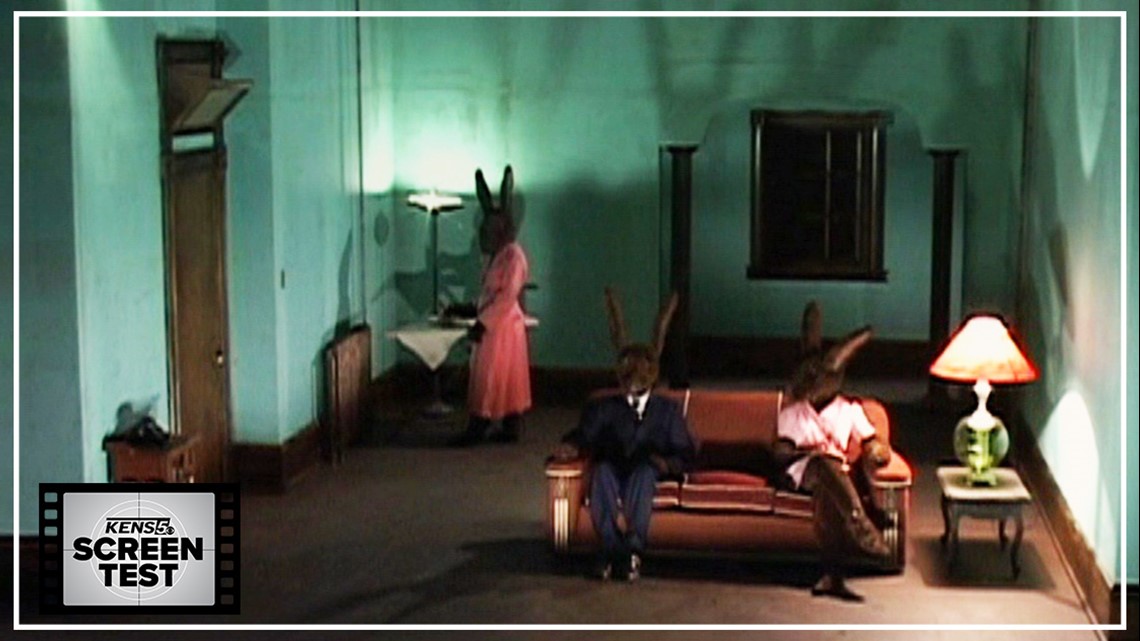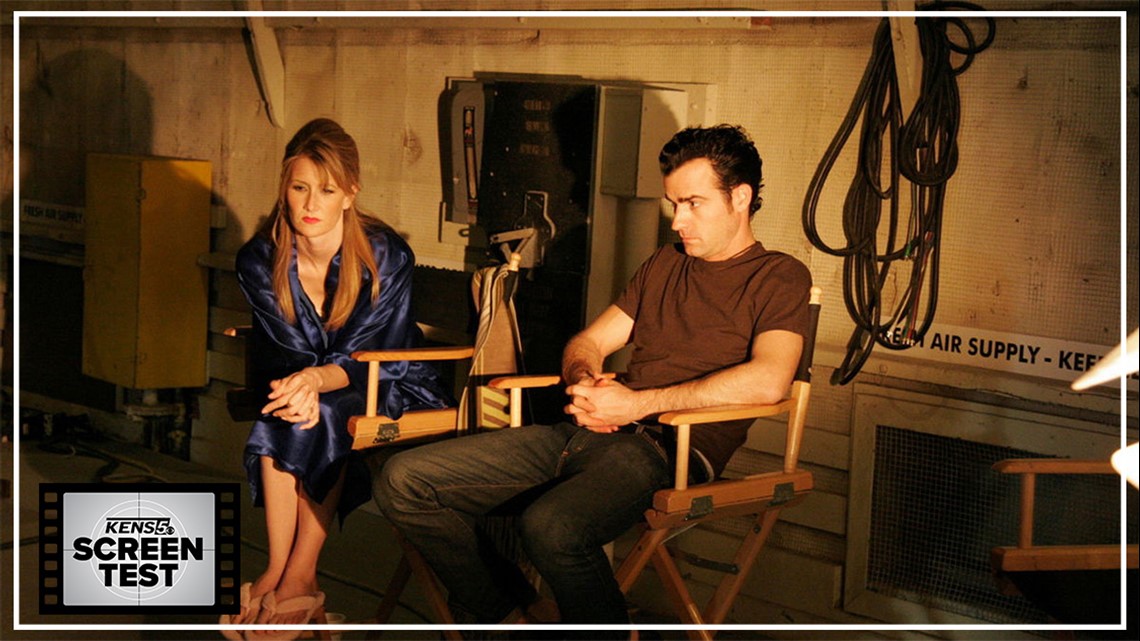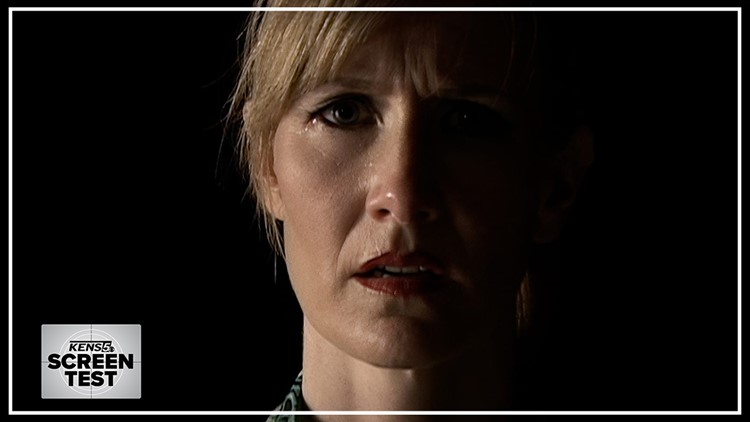SAN ANTONIO — In 2006, Hollywood writers were on the verge of striking, Marvel was preparing to take over the industry, Netflix was set to disrupt it—and David Lynch’s “Inland Empire” was unleashed on the world.
In 2023, Hollywood writers are striking, Marvel still more or less has a grip on the industry, artificial intelligence might be set to disrupt it—and “Inland Empire” is, if firstly a bottomless puzzle box, also one of the most striking filters to sift through the distortion that’s settled over American movies and the people who make them.
It wouldn’t be hyperbole to say the coming months might provide clues as to how the coming decades will look for filmmakers, audiences and the channels through which the former reaches the latter. But it also wouldn’t do to suggest that this moment, while fast-tracked by COVID-19, arrived like a smash-cut instead of a slow fade. For the better part of two decades the line between film and TV, artistic ambition and financial aims, what audiences want and what’s worth their time has become as fuzzy as… well, the narrative of a Lynch movie.
So it goes that watching “Inland Empire” in 2023, 17 years after it debuted to confusion and praise, is like watching an industry at odds with itself trying to maintain its footing on convulsing terrain in real time. Screening this week at Southtown’s Arthouse at Blue Star, “Inland Empire” is less a lighthouse than a flickering bulb providing just enough shine for us to feel our way through the crevices, side alleys and spectral wormholes of Nikki Grace (Laura Dern) discovering if she has what it takes to be a star after landing an exciting role alongside Justin Theroux’s Devon Berk…
Maybe. Probably? It’s the surest sign this is a Lynch film that you can confidently tread the plot’s first few stones only to tumble into the raging currents of strangeness below—after 180 decreasingly sensical, increasingly surreal minutes, we can’t definitively say what Nikki has been through. We can barely even discern if it’s the same Nikki we met long before (thanks in part to the incredible destabilization of Dern’s performance). Just as the line between dreams and reality were blurred in “Mulholland Dr.,” the 2001 Lynch feature that preceded this one, “Inland Empire” finds the viewer working to discern right-side-up between roleplaying and living.
True to Lynch’s preferred method that his works be watched, “Inland Empire” emphasizes itself as a movie to be understood not through traditional narrative payoff but the sensations conjured up through its kaleidoscopic approach. Parts of it feel like the movie reckoning with the fact that the only thing more maddening than navigating love, hate and envy is recreating those passions on a movie set. And the demonstrably grainy footage deployed early makes it seem as though we’re not being presented with a movie at all, but rather ambushed with tense moments gathered from behind the scenes, adding to the mystery and allure.
The rumors that Nikki’s new film is a remake of an unfinished project whose leads were murdered, meanwhile, conjures an unease you might as well drape yourself in. You’re never sure where the next cut will take you, or when. Questions pile up so fast – Is Nikki still Nikki? Who is the tearful young Polish girl we keep returning to? And what’s the deal with those rabbits? – that we have to remind ourselves the answers themselves aren’t as important as our proximity to their very possibility. If you can find a shot, a line, a look to hook onto, it might just help you make emotional sense of this multiverse of madness.
Watching “Inland Empire” in 2023 feels, in other words, more than a bit like how the post-pandemic volatility of the movie industry reads in headlines; how our ability in a streaming-obsessed era to open up HBO Max – er, Max – and go from “Rio 2” to “Rio Bravo” in just a few clicks is as disorienting as it is empowering; how the divide between moviegoers who want comfort and moviegoers who want a challenge continues growing wide enough to swallow up the medium as we know it. It’s too soon to theorize what might emerge in its place, though if the industry’s rapid transformation since the days of “Inland Empire’s” release signals anything, it’s that the evolution might be on our screens before we even notice the curtains rising.


Adaptable as moviegoers have proven themselves to be, the most recent stages of cinema’s recent history echo the leaps through time and logic that Lynch’s movie delights in. And if we’ve learned to be on our guard for the next major change, then Nikki is our proxy as she tries time and time again to assert herself within shifting environments, ostensibly being drawn in and out and back again through the subconsciousness of moviemaking itself. Given Lynch had been navigating LA’s Dream Factory for nearly 40 years when he released “Inland Empire,” it’s only natural that we begin to analyze it from the perspective of a seasoned creator.
But the movie’s nightmarish reflections of Hollywood society – soundstages, TVs glowing in shadowy rooms, a bloody stroll along the Walk of Fame – open “Inland Empire” up to be picked apart from the audience's point of view too.
In Nikki and Devon’s capitulation to the lover characters they’re cast to play, you might feel a pang of familiarity if a film has ever clamped down on you so strongly that it becomes a part of your personality.
In the story's inverted sense of order, you might recall how you watched new movies growing up and realize that a communal experience has, for better or for worse, become a vastly more isolated one.


And in its seemingly labyrinthian assemblage, you might glimpse the ever-fluid parameters that define the experience of watching today, the way industrial change or endless streaming catalogs can be both intimidating and exhilarating. The lay moviegoer’s experience typically begins and ends with what’s shown on the screen. For them, “Inland Empire” could be enriching homily—or, depending on how much they’re willing to open up, irritating and preposterous parable. Taking a seat in the Church of Lynch is half the battle.
“I’m not too keen on thinking about tomorrow, and today’s slipping by,” says one of Nikki’s many alternate selves in “Inland Empire.” Watch the movie 50 times and you’re bound to experience 50 different conclusions, and a different lingering feeling each time. That Lynch has not made a feature since is eerily appropriate, and it beckons one to wonder what he knew what we didn’t about what tomorrow would bring, and ultimately has brought.
Regardless, time has proven Nikki right: In the world of movies, for those who create or merely watch them, today’s slipping by. Seemingly faster than ever.
"Inland Empire" screens at 7 p.m. on Tuesday and Thursday at Arthouse at Blue Star (134 Blue Star). Tickets cost $10.



